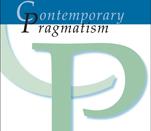Discretion In Legal Decision Making
Beleid is a Dutch concept, difficult to translate, that is an integral part of Dutch culture and society. The English equivalent, policy, covers only half of its meaning. The definition of beleid, according to an authoritative dictionary of the Dutch language, refers to a set of contradictory connotations: on one hand, beleid means to manage and administer (besturen) based on principles and policies. This would allude to top-down planning if a second meaning were not implied simultaneously, that is, considerate treatment (bedachtzaamheid), preferably by hearing all those concerned and giving them a say. Strictly speaking, these connotations contain opposites: either one can take decisions against the wishes of at least some of those concerned or one can come to an agreement with mutual consent, which implies a nondecision in the case of a veto or resistance. In theory and practice, beleid is a mixture of both.
Beleid is the art of rule making and rule implementation in context. The legalistic model of law is always formulated top-down: law binds public agencies, which should not do anything not within the law. The concept of beleid is the expression of a bottom-up strategy, either by the managers of implementation agencies who formulate guidelines or by street-level officers who have to render rules and guidelines "workable" in their daily practice. As complex organizations, government agencies tend to specify their mission in terms of beleid, sometimes vaguely as declarations of intent, sometimes explicitly as guidelines.
Of course, civil servants and the police everywhere resort to such informal strategies. What differentiates the Dutch situation may simply be the publicity and legitimacy with which they do so. Instead of being forced to maintain a façade of strict legalism, lowerlevel agents enjoy discretionary power and formulate...


